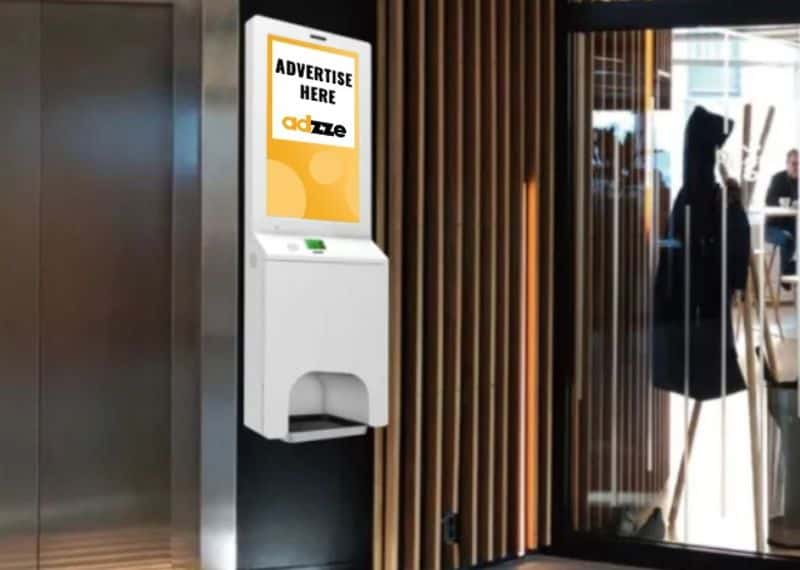The COVID-19 pandemic did bring along with it some good tidings when looked at from an advertiser’s perspective. At the outset, the wave of the pandemic was brutally harsh on the advertising industry. Right now, a closer look at things reveals that the hardship opened up new and affordable marketing solutions for businesses. One of these new advertising solutions is the use of branded hand sanitizer stands to display ads.
Quite unconventional, but effective at best; it is targeted and not random, and cost-effective. Quite recently, they have suddenly risen from obscurity to limelight.
The concept of using branded hand sanitizer stands is attractive and holds immense promise for business owners, especially those who can’t afford the cost of traditional OOH media. Typically, the sanitizers are placed in public places, where people can gain easy access to them. As they stretch out their hands for alcohol-based sanitizers, their attention is simultaneously caught with displays on the dispensers. The stands are often completely or partially decaled with the name and logo of the company sponsoring the sanitizer stand or paying to display its ads on it. Branding these sanitizer stands with ads is a new marketing option that has been growing exponentially among marketers. It is fairly new to the scene, but fast gaining in popularity.
How Your Business Can Benefit From Branded Hand Sanitizer Stands







